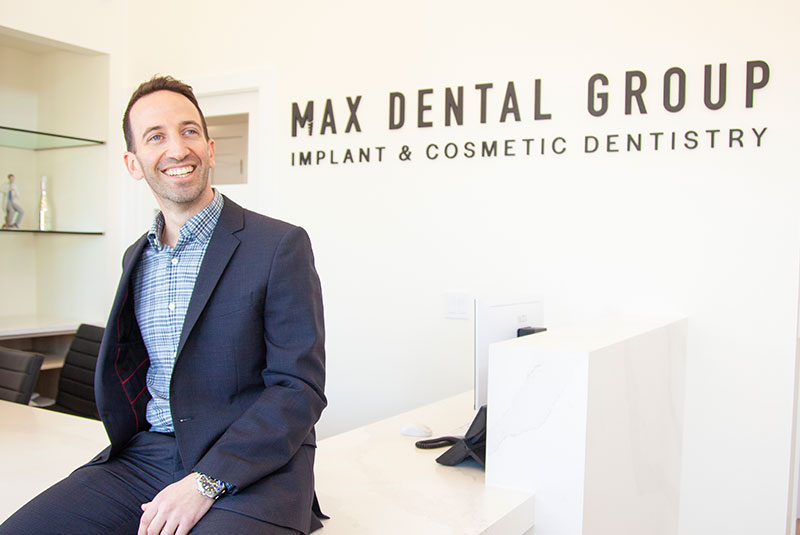Gum disease, or periodontitis, makes everyday life embarrassing and painful. Swollen and bleeding gums, tooth sensitivity, severe bad breath, and tooth loss can all make it impossible to feel confident and comfortable.
You may even notice that it’s more challenging to stay healthy or control pre-existing health conditions like diabetes or cardiovascular disease. If you have advanced and chronic gum disease, don’t wait any longer to receive treatment from our periodontist. As the gum expert, Dr. Graig Fischgrund has unique training and specialization to treat gum disease and replace lost tissue, bone, and teeth. We can help you establish better oral health and renew your quality of life.
If you have advanced and chronic gum disease, don’t wait any longer to receive treatment from our periodontist.
Osseous “flap” surgery involves making small incisions in the gums to gain access to the tooth roots, allowing for more effective dental scaling and root planning. For bone damage that has occurred, recontouring bone damage, suturing the gums, and potentially placing bone grafts and/or soft tissue grafts to improve support for teeth and enhance smile aesthetics. This procedure eliminates calculus, reduces pocket depth, removes damaged tissues, and addresses chronic infection and gum inflammation.
This non-surgical procedure begins with removing plaque and calculus deposits from your teeth with a dental scaler. Next, the rough areas on your tooth and root surfaces are smoothed to discourage bacterial accumulation and help healthy gums reattach to form a tight seal around the teeth.
LANAP allows your gum tissue to reattach to your mouth and jawbone. We use PerioLase®, a state-of-the-art dental laser, to provide you with precise and effective treatment for gum disease. We’ll remove damaged gum tissue, bacteria, and tartar from your gum line to save your loose teeth and restore your gum health.
LAPIP is the only predictable treatment to effectively save your dental implants from the effects of peri-implantitis and restore your gum health. Unfortunately, many people don’t realize they have the disease, which affects dental implants without proper oral hygiene and consistent dental care. Using PerioLase, we can remove damaged gum tissue and treat your failing dental implants.
Periodontitis can never entirely be eradicated, but once chronic gum disease is actively treated, Dr. Fischgrund will continue to provide specialized treatment. A cleaning is recommended every three months to remove calculus buildup at and below the gum line. This will effectively clear out bacteria to minimize the risk of an infection developing again. Periodontal maintenance will replace your regularly scheduled hygiene appointments.

The initial step typically involves a comprehensive examination by Dr. Fischgrund to assess the severity of the gum disease.
Treating gum disease involves a combination of professional dental interventions and consistent oral hygiene practices at home. The initial step typically involves a comprehensive examination by Dr. Fischgrund to assess the severity of the gum disease. The primary goal is to remove the accumulated plaque and tartar through a professional dental cleaning procedure called scaling and root planing. This process involves meticulously cleaning the teeth and their roots to eliminate bacteria and smooth any rough surfaces that could attract plaque buildup.
In more advanced cases, surgical interventions such as flap surgery, bone and/or gum grafts, or LANAP laser therapy may be necessary to repair and regenerate damaged gum tissues. Maintaining a thorough oral hygiene routine that includes regular brushing, flossing, and antimicrobial mouthwash is crucial alongside professional treatment. Lifestyle modifications such as quitting smoking and adopting a balanced diet can help support gum health and aid in treating gum disease. Regular dental check-ups are essential to monitor treatment progress and make any necessary adjustments.
I understand the information disclosed in this form may be subject to re-disclosure and may no longer be protected by HIPAA privacy regulations and the HITECH Act.
